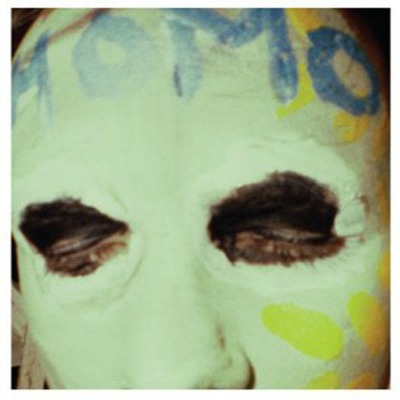Review by Ryan Leach
Auckland’s the Scavengers was one of New Zealand’s first punk bands. The group’s time in the sun was brief; not counting this posthumous collection, the Scavengers’ output consisted of two tracks on the AK79 compilation and a Propeller single (as the Marching Girls). Nevertheless, the group’s influence transcended its limited vinyl output.
Like the London SS to the Clash, the Scavengers had roots in a proto-punk band called the 1B Darlings. Formed by future Scavengers Paul Cooke (Johnny Volume), Simon Monroe (Des Truction), Mike Simons (Mike Lezbian), and Marlon Hart (Mal Lcious), the 1B Darlings debuted in 1975, playing an end-of-the-year celebration at Auckland Technical Institute. The show was a disaster. Nevertheless, the group continued undeterred, banging out a few more glam covers at subsequent shows before calling it a day.
The Scavengers formed in 1977 after its members read about the British punk scene. Like the UK movement, punk in New Zealand created a scandal. The press ate it up; it was easy and cost-effective for news stations to cover the milieu.
Mal Lcious was ejected from the Scavengers early on; Ronnie Recent (Brendan Perry) replaced him on bass. Sessions for Polydor Records ensued, only to have vocalist Mike Lezbian leave the band to pursue a career in advertising.
Ronnie Recent, with his short-scale Fender Mustang bass (which likely made the difficult task of playing bass and singing somewhat easier), took over for Lezbian. Unfortunately, this lineup change put the brakes on The Scavengers releasing material for some time. Nevertheless, the setback was, at least in retrospect, somewhat fortuitous: it provided the subject matter for the group's classic song, “Mysterex”, a critique of their career-minded former front man:
Well you’re a bloody hypocrite, just a dirty social climber
Nine to Fiver
Social Climber
Oh, yeah
The Scavengers held down a residency at Zwines, Auckland’s first punk venue, in April 1978. The group later appeared on Barry Jenkin’s Radio With Pictures program on New Zealand television before making the ill-fated decision to move to Australia.
Australia didn’t care about the Scavengers (or the Marching Girls, as the group renamed itself). Gigs didn’t materialize, and the Scavengers were marginalized. A single, “True Love”, was released before the band went on hiatus. Brendan Perry later formed Dead Can Dance (seriously).
This eponymous collection contains 10 tracks; two are versions of “Mysterex” recorded at different dates (the second take is likely the Greg Lear-recorded track that appears on AK79). The fidelity is surprisingly high.
The Scavengers’ sound is heavily indebted to the Sex Pistols and Stiff Little Fingers. Perry has a caustic delivery, while Volume’s guitar work is influenced by Johnny Ramone’s barre chords (although the tempos on most Scavengers songs are closer to those found onNever Mind the Bullocks). “Mysterex”, “True Love” (a catchy pop song), and “Violence” are likely the Scavengers' best moments.
Interspersed throughout this collection are news audio bites from a New Zealand television program, describing punk rock to curious audiences at home. Their inclusion is appropriate. The Scavengers weren’t meant to last. They were a product of their time—back when simply being a punk band was reason enough to get coverage. That doesn’t take away from the Scavengers’ music: the members produced some great ’76-style punk rock, nothing more and nothing less. They pioneered a scene that produced formidable artists, like Chris Knox and Alec Bathgate; stellar musicians, such as Paul Kean; and labels like Ripper, Propeller and Flying Nun.
The Scavengers is a great collection of a special moment in New Zealand rock ‘n’ roll, where nearly everything seemed possible.
(Thanks is due to John Dix’s Stranded in Paradise, Andrew Schmidt’s liner notes to The Scavengers, and the accompanying booklet to the recent AK79 reissue for the historical information.)







